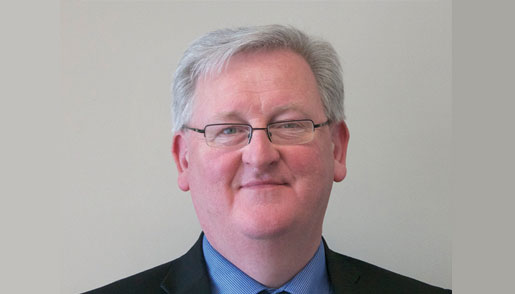In defence of special advisers


Former Stormont special adviser Michael McKernan thinks the current criticism of ‘SPADs’ is somewhat excessive.
The Renewable Heat Incentive controversy which has collapsed the Stormont Executive has unleashed a whirlwind of public outrage around the role of Stormont’s Special Advisers (SPADs) seen by many as being at the heart of the problem. SPADs are now portrayed by commentators as spin doctors and spivs practising the ‘dark arts’ in the shadows while at the same time being far too powerful and far too well paid. Angry callers to the Nolan Show want rid of them. They are now an endangered species.
I think this is an over-reaction. Having worked as a special adviser for over six years and for three different Ministers, I disagree with much of the commentariat criticism. During my time I worked closely with many other SPADs across different parties and found the vast majority to be committed, hard-working, intelligent and as far as possible in our fraught politics, honourable.
I think we all shared the view, which I still believe strongly, that our democratically elected ministers deserved a form of support that was personal to them, over and above that provided by an army of civil servants, many of whom would be more focused on the needs of the Permanent Secretary than on the needs of the Minister (ministers don’t make or break civil service careers but Permanent Secretaries can). So, one person whom they could trust, who shared their political outlook, who has their back and who could bring directly relevant experience/expertise to help get the best from their time in office.
Also, most SPADs would match the hellish hours their political masters worked. Available 24/7, including weekends and even on holidays – more than could be reasonably asked of a ‘standard’ civil servant. I would generally have spent the equivalent of a full ‘normal’ working week just reading and wading through the detail of the mountain of material crossing the Minister’s desk. If you didn’t read it then you couldn’t advise on it.
Thus SPADs are unavoidably hand-picked political appointees, badged as ‘temporary’ civil servants. It might be better if they could be appointed via open competition, but that is unrealistic. Fundamentally, there is nothing anti-democratic about having a small number of chosen advisers around ministers, providing they are properly qualified for the job and behave in a manner that reflects their privileged position. Many mature democracies have a system of government where nearly all the senior people are hand-picked and where, when there is a change of government, one batch of advisers are replaced by a new batch in the colours of the incoming regime. There is nothing intrinsically wrong with appointing special advisers, the real problem is that some SPADs have behaved poorly.
Are SPADs really these reputed shadowy figures practising the dark arts? My experience says no. I must have met hundreds of representative groups, project developers, campaign advocates and PR people all advancing an issue, a cause or a project and wanting to get their message to the Minister. I regarded it as my duty to meet as many as possible (as well as to take pressure off the Minister) and I would pass their message on faithfully. It was the same for most SPADs – we were not hidden – we were meeting stakeholders all the time.
As for practising ‘dark arts’, although one commentator likened SPADs to the hilarious, but ultimately ridiculous, TV parody ‘In the Thick of It’, there is actually little resemblance in real life. It ignores the heavy, intellectually demanding work of reading and analysing. Yes, it’s true SPADs often intervene in communications, but primarily because (too often) ministerial speeches, press statements, letters etcetera drafted by civil servants, lacked empathy or focus. While I got to know most of the senior journalists covering politics and government, I would rarely try to sell them a story or exaggerate its significance. To do so would only damage your own reputation.
SPADs rarely go off-piste but occasionally have to do things that ministers could not be expected to do. I myself held private meetings to try and find resolution to a highly controversial funding issue with a UDA-linked project. I can also reveal here that it was information I gleaned from meeting whistleblowers privately, followed by decisive and courageous Ministerial action, that unearthed and ultimately dealt with the Red Sky scandal.
Are SPADs too powerful? Perhaps, yet they have no staff and no right to instruct civil servants. It is only because the system sees the influence the SPAD has with the Minister that it defers to them accordingly. I worked with many fine civil servants and my experience was that when they got over any initial wariness, they were happy to use the SPAD as a resource in helping steer work they were doing for the Minister. Certainly, on Fridays, when ministers are away tending to their constituencies I often had a queue of officials at my door looking for a “quick word”.
No doubt in one or two cases SPADs have let the deference shown to them go to their heads and have ultimately lost their way, but in most cases SPADs appreciate that they enjoy a very privileged position and do not abuse their perceived power.
Reform
Although I’m defending SPADs I do support reform. Firstly, the appointment of any adviser should be subject to a competence test. They must have a CV which demonstrates significant relevant experience/expertise proving that they bring more to the table than just friendship or loyalty. Pay should be considered in the context of previous earnings and quality of CV.
One of the greatest unnoticed problems with SPADs at the heart of government is the mismatch in skills and experience between the two sides. The DUP has tended to appoint skilled lawyers while Sinn Féin has gone for activists. I believe that long-running arguments about what the parties have actually negotiated (most notably the detail of the St Andrew’s Agreement at the heart of the current dispute) are a result of the Sinn Féin SPADs not having the necessary skills to translate what they thought they had agreed politically, into the final binding text. This is surely avoidable.
Secondly, it would be better if SPADs were limited to a certain number of years of service. Perhaps serving a maximum of two Assembly terms (enough to exhaust anyone) so that they do not become entrenched and start to believe in their own power.
Thirdly, there are too many SPADs at the centre. Under current arrangements 50 per cent of all SPADs are in one department, the Executive Office. This leads to a pecking order and competition among the advisers, which can delay and frustrate smooth government rather than assist it. Reduce the total number from 16 to 10; one for each Executive Minister.
Overall I believe advisers do much more good than harm. With appropriate reform they can continue to provide a dedicated professional service which helps ministers to deliver.
Name: Michael McKernan.
Ministers Served: Margaret Ritchie MP, Alex Attwood, Mark H Durkan.
Departments: Department for Social Development (now Communities), Department of the Environment (now Infrastructure).
Education: Degree in Economics (QUB), Masters Degree in Irish Politics (QUB). Various post-graduate qualifications, including Diploma in Advanced Statistical Methods (TCD) and Diploma in Business Strategy from IMI.
Previous Work Experience: Housing Manager, NI Housing Executive, Belfast. Civil Servant, Department of Finance, Dublin (National Trade negotiator at EU in Brussels and WTO in Geneva). Strategic roles in Eircom Dublin and Viridian Group Belfast (spearheaded Viridian’s entry into the southern energy market). Established BMF Business Services, with events, publishing and consulting divisions. Co-Chaired the original Maze Panel that reached a comprehensive agreement. Member of the Northern Ireland Advisory Committee to OFCOM





